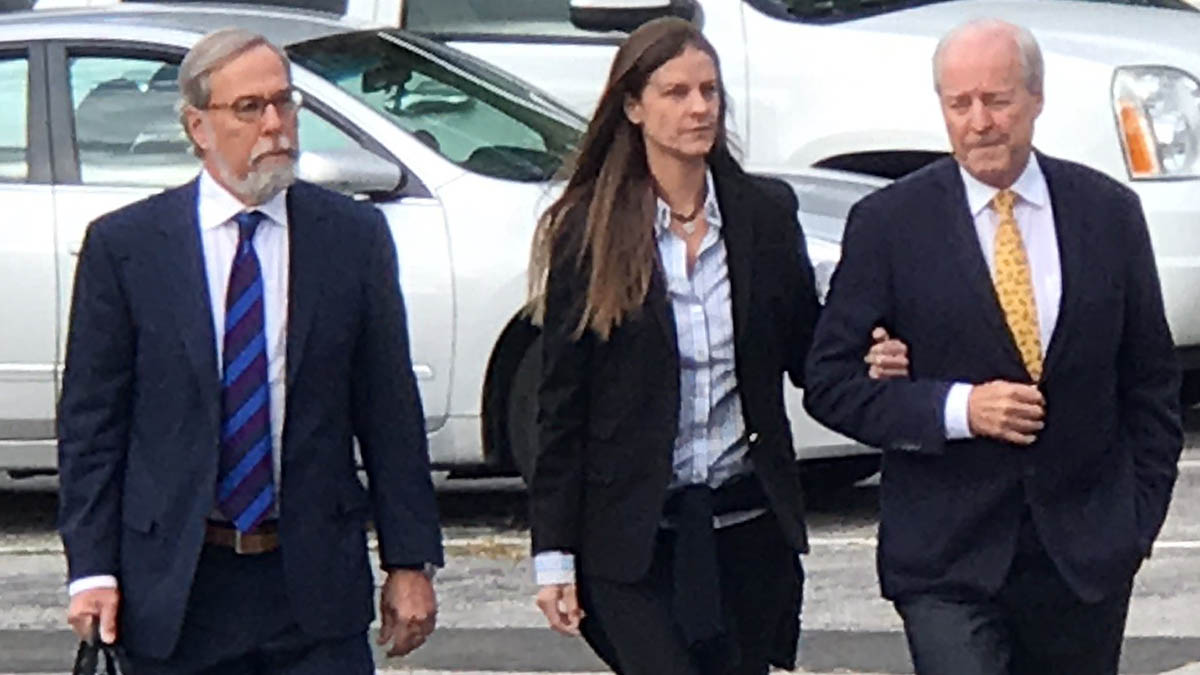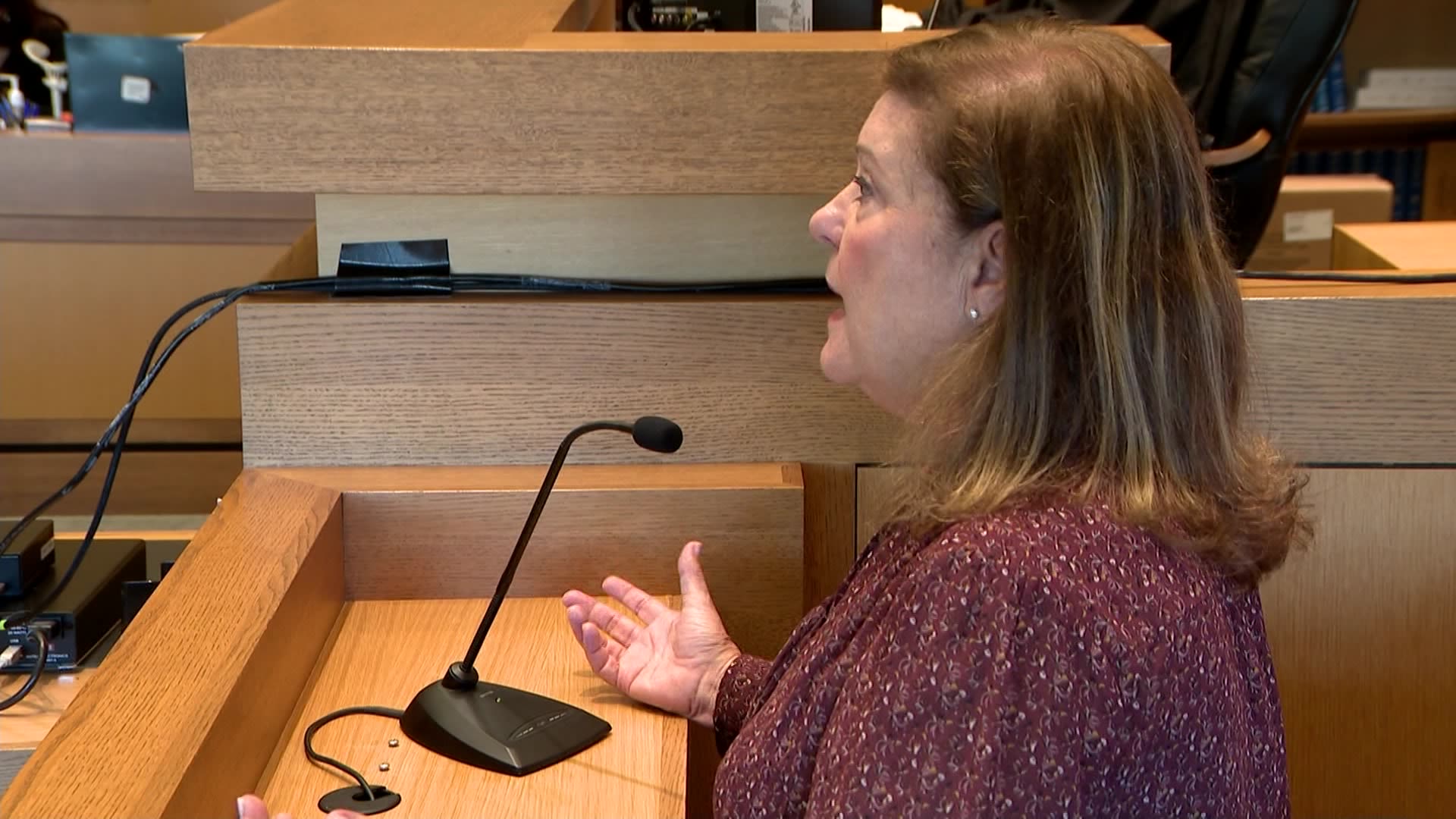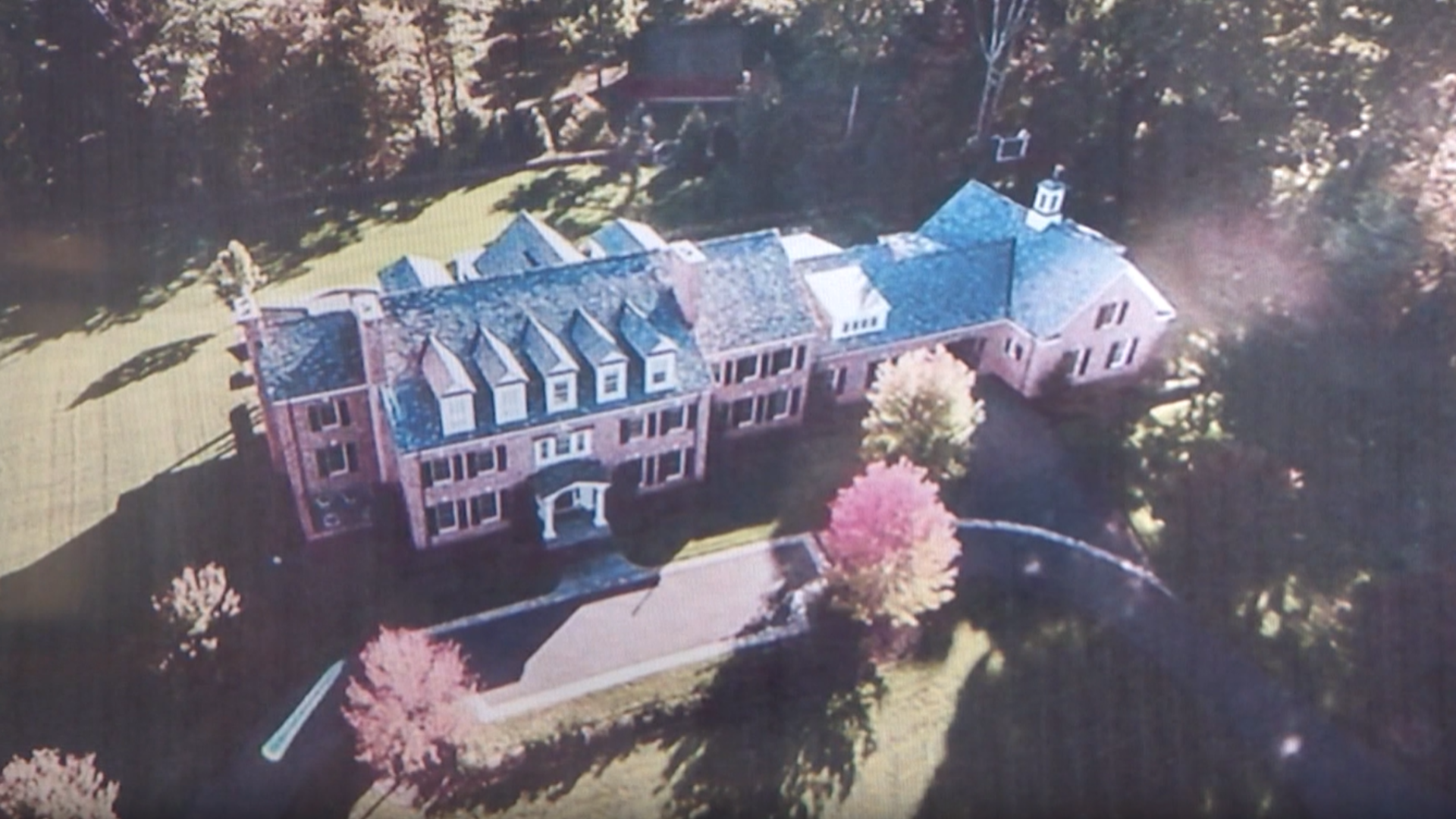Attorneys concluded arguments Tuesday over the prolonged Connecticut State Police search...

www.stamfordadvocate.com
Attorneys argue over 'alibi scripts' found in Farmington home days after Jennifer Dulos vanished
Attorneys concluded arguments Tuesday in one of several outstanding motions in the case of Michelle Troconis, who is facing charges in connection with the
death and disappearance of Jennifer Dulos.
In state Superior Court in Stamford, Assistant State’s Attorney Sean McGuinness and Troconis' attorney Jon Schoenhorn argued about the defense's motion to
suppress evidence seized at 4 Jefferson Crossing. Troconis was living at the Farmington home with Fotis Dulos when his estranged wife disappeared in May 2019.
Schoenhorn has argued he
believed the warrant's scope was unreasonable.
Superior Court Judge Kevin A. Randolph said he plans to file his written decision on the matter by next Tuesday. Earlier this month, he ruled that the police affidavit provided probable cause for the search.
Attorneys in the Michelle Troconis case wrapped up arguments Tuesday in Stamford Superior Court on a motion from the defense to suppress all evidence seized at the Farmington home Troconis shared with Fotis Dulos when his estranged wife disappeared.
connecticut.news12.com
Arguments wrap on police search of Farmington home in Jennifer Dulos investigation
Police arrived at the Farmington home with a warrant on May 31, 2019—one week after Jennifer Dulos was last seen. Schoenhorn said law enforcement ordered everyone out of the house and held the scene for four days with the search not happening until June 3. He told the court he hasn’t found any case where a search took that long or where people were told they had to leave.
“To eject them from a home and say, ‘Well, we're going to be here for days. You have to move someplace else,’ is, I think, not only unreasonable but outrageous,” Schoenhorn said. “Because of the length of time, anything that was seized then on June 3 was unreasonable, and therefore, the remedy under the Connecticut constitution should be suppression.”
The state argued that the Jennifer Dulos investigation was very fluid at the time, and though the house was secured on May 31, police ended up executing other warrants before this one.
“There is no causal connection at all between the length of time that the home was seized and the discovery of this evidence. It's not as if they entered some part of the home they weren't supposed to enter and they discovered the evidence that way,” McGuinness told the court.
Schoenhorn also argued that the search was “a rummaging” of the house, and all items seized except one, black trash bags, went beyond the scope of the warrant. That includes what police termed “alibi scripts,” handwritten timelines of where Troconis and Fotis Dulos allegedly were the day Jennifer Dulos went missing. Schoenhorn said the search warrant was very specific about what type of handwritten notes could be taken.
“If it's simply handwritten notes, they could seize them, but it says, ‘Handwritten notes or correspondence by, to or from the victim.’ It's not that,” Schoenhorn stated.
McGuinness disagreed and pointed to Jennifer Dulos’ name being written on one of them and said the notes involved Troconis and Fotis Dulos, who were suspects in the investigation. He also said even if the judge sides with the defense on that point, police were still allowed to seize the timelines because they were in plain view and clearly relevant to the investigation.
“When they examined the document, the probable cause to believe it was related to the case was immediately inherent due to the fact the document set forth a detailed timeline for the date that Jennifer Dulos went missing,” McGuinness said.
Randolph said he expects to issue a written ruling on this motion by Oct. 3. That’s the day before jury selection begins
in the case, which is expected to take at least a month. The trial isn’t set to start
until January because there are several outstanding motions regarding evidence suppression that still have to be argued.



 www.crimewatchers.net
www.crimewatchers.net












